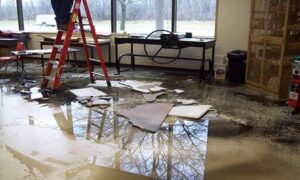
The COVID-19 pandemic has permanently altered the landscape of work, accelerating the adoption of remote work practices. As companies and employees have embraced remote work, the implications for urban real estate prices have been profound. This shift has caused notable changes in demand for both residential and commercial properties in urban areas.
Decline in Demand for Urban Office Spaces
With remote work becoming the norm, companies are re-evaluating the necessity of maintaining large office spaces in high-rent urban centers. Many businesses have downsized their office footprints or transitioned entirely to remote operations. This trend has resulted in a decreased demand for commercial office space, leading to a decline in rental prices in many urban areas. For instance, cities like San Francisco and New York have seen significant reductions in office space prices as vacancies have increased.
Residential Real Estate Dynamics
On the residential side, remote work has given individuals greater flexibility in choosing where to live. Without the need to commute daily, many people are opting to move away from expensive urban centers to more affordable suburban or rural areas. This migration has caused a softening of residential real estate prices in cities while driving up prices in suburban and rural locales. Cities that were once desirable due to their proximity to workplaces are now seeing slower price growth or even declines.
The Rise of Home Improvement
As more people spend time at home, there has been an increased focus on home improvement projects. Homeowners are investing in renovations to create more comfortable and functional living spaces. This trend has bolstered markets for home improvement products and services, including SI Window & Doors Replacement, as individuals seek to upgrade their homes for better aesthetics and energy efficiency.
Impact on Urban Amenities and Services
The shift away from urban living has broader implications for city economies. Reduced demand for housing and office space affects property tax revenues, which fund essential urban services and amenities. Cities may need to adapt by repurposing vacant office spaces for residential use or enhancing their appeal to retain residents and businesses.
Future Outlook
While the long-term effects of remote work on urban real estate prices are still unfolding, it is clear that the traditional demand drivers for urban properties have changed. Cities may need to innovate and adapt to attract and retain residents and businesses in a post-pandemic world.
In conclusion, remote work is reshaping urban real estate prices by decreasing demand for office spaces and altering residential preferences. This new paradigm underscores the importance of adaptable urban planning and the growing relevance of home improvement services, such as SI Window & Doors Replacement, as people redefine their living and working environments.









